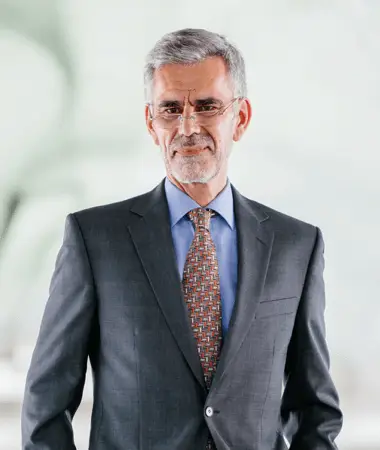If you’re looking for professional counseling services, it can be difficult to know where to start. This blog is dedicated to helping people find the right counseling professional for them, based on their specific needs and goals. By understanding the different types of counseling available and how to find the right professional for you, you’ll be on your way to getting the help you need. In addition, this blog provides tips on how to interview a counselor and ensure a successful first appointment. So whether you’re struggling with a mental health issue or just want to take the first step in resolving an unresolved conflict, read on for advice that will guide you in the right direction.
What is counseling
Counseling is a form of psychotherapy that helps people deal with issues such as psychological trauma, addiction, and relationship problems. It can be used to treat individuals or groups, and it usually lasts between 60 and 90 minutes.
There are many different types of counseling, but the most common approach is cognitive-behavioral therapy (CBT). CBT works by helping clients change their thinking patterns in order to improve their mental health. This typically involves breaking down complex problems into simpler ones, identifying specific behaviors that contribute to problem behavior, and modifying these behaviors accordingly.
Another popular type of counseling is interpersonal therapy (IPT). IPT focuses on resolving conflicts within relationships by addressing the underlying emotions behind them. It often includes techniques like confrontation.
When it comes to finding the right counseling professional for you, it’s important to understand what it is and what it entails. Counseling is a form of therapy that uses conversation and support to help people work through their problems. There are many different types of counseling, each with its own unique benefits and limitations. To find the best fit for your needs, start by exploring the different types and see which one best suits your needs. Once you’ve chosen a type, look for resources that can help you find the best professional for you – like online or in-person referrals. Remember, counseling is an important step in finding relief from your health issues or struggles.
The different types of counseling
-Psychotherapy
-CBT (Cognitive Behavioural Therapy)
-Family Counseling
There are many types of counseling, and each has its own specific benefits. Some common types of counseling include individual therapy, family therapy, group therapy, couples counseling, and self-help/inspirational books or audio recordings.
Each type of counseling is designed to help a particular population or set of people with a specific problem or issue. In general, the benefits of different types of counseling vary depending on what the person needs and wants from it. However, most people find that overall they get more out than they put in when participating in therapeutic activities.
How to find the right counseling professional for you
When it comes to finding the right counseling professional for you, it’s important to consider your needs and preferences. This means taking the time to interview several candidates and ensuring that the counselor you choose is licensed and operating in an ethical manner. It’s also important to attend sessions regularly and follow the counselor’s recommendations. If you’re feeling lost or need some advice in finding the right counseling professional for you, reach out to us! We would be more than happy to help.
If you’re looking for a professional counselor, your first step is to explore the different types and find one that best fits your needs. Once you have found a type of counseling that interests you, it’s important to find resources like online or in-person referrals. These referrals can help you identify counselors who are qualified and experienced with the type of therapy that you want. Remember, when choosing a counselor, it’s important, to be honest about what kind of support and conversation appeal to you most.
Tips for finding a counselor
– Be honest about what you need and want from counseling.
-Be open to talking with different counselors and considering a variety of options.
-Decide whether you want a professional or personal counselor.
-Look for referrals from family, friends, colleagues, mental health professionals, or the internet.
-Ask around for ratings and reviews of counselors before making a decision.
If you’re feeling lost or struggling with some unresolved issues, it may be helpful to seek out professional counseling. There are a number of options available, and the right counselor can help you navigate through your problems and find a resolution.
To start your search for a counselor, consider contacting your local mental health center or psychiatric hospital. They may have a list of registered counselors who work with clients from across different backgrounds and experiences. Alternatively, you can look online for lists of licensed therapists in your area. Websites like Therapist Finder offer detailed profiles of each provider, as well as ratings from previous clients.
How to interview a counselor
Interviewing a counselor can be an emotionally and mentally taxing process. It’s important to take the time to research your potential counselor thoroughly before you even begin the interview process. This way, you will have a better understanding of what they are capable of providing for you and your loved ones.
-Be respectful from the beginning. Make sure that your questions are relevant to their experience and expertise as a counselor, and avoid asking personal questions that could be considered confidential or invasive.
-Set boundaries early on in the conversation by stating exactly what is acceptable behavior during the interview and making it clear that any deviation from these guidelines will result in termination of the session without a refund.
-Always remember that counselors are people too! Try not to come across as judgmental or unyielding, which may prove difficult given their position within society today.
What to expect during your counseling appointment
During your counseling appointment, you will be asked questions that help us understand your concerns and how we can best address them. You may also be given exercises to do at home in order to work on the issues that you have brought up. Please remember that everything discussed during this appointment is confidential – no one else other than our team members will know what was said. We hope that this meeting provides relief and allows you to start moving forward with healing.
During your counseling appointment, you and your counselor will discuss any concerns or questions that you may have. You’ll also get an opportunity to ask any questions that you might have about the program. Your counselor will be available to answer any of your questions and help you feel comfortable during this important process.
Conclusion
After reading this blog, you will be able to find the right counseling professional for you. By understanding the different types of counseling and how to find the right one for you, you will be able to start your journey to mental health recovery. Remember to be patient while interviewing a counselor and be prepared to answer questions about your mental health history and current situation. Finally, make sure to follow up with your counselor after your appointment to discuss your experience and progress.






